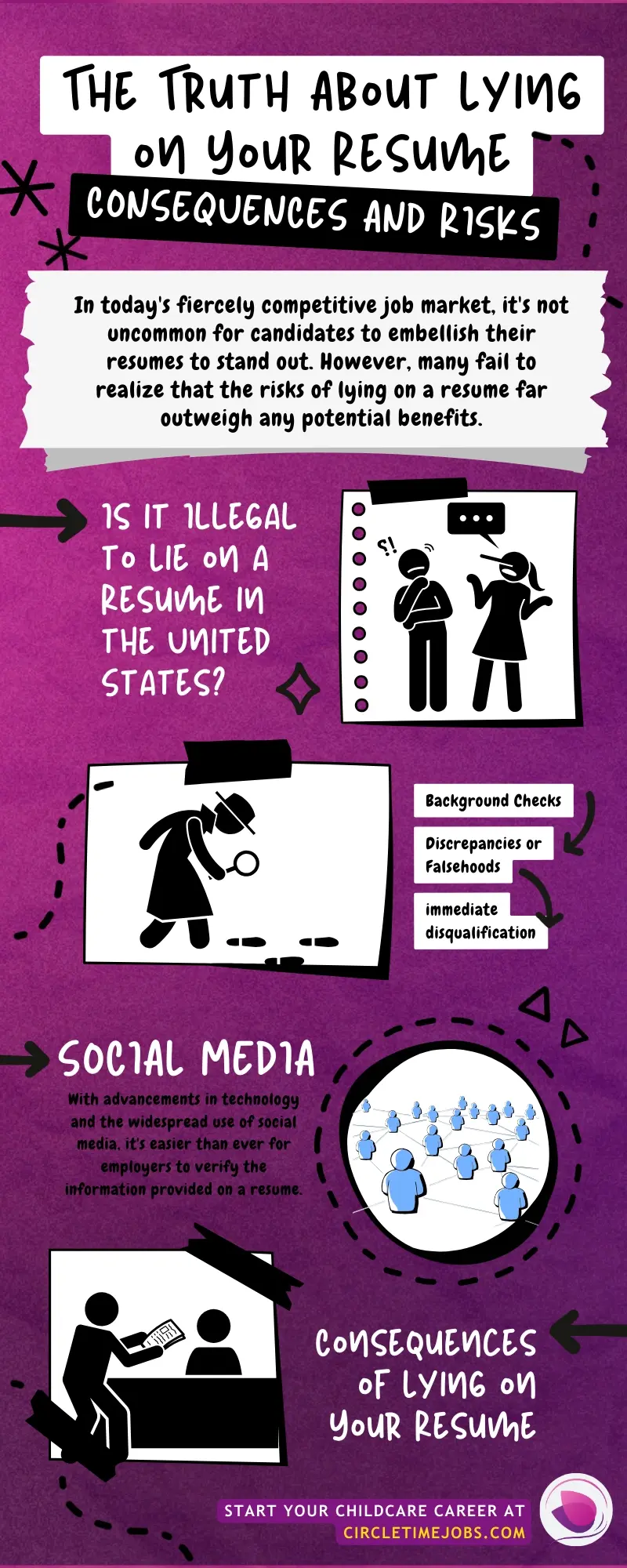
The Truth About Lying on Your Resume: Consequences and Risks
In today’s fiercely competitive job market, it’s not uncommon for candidates to embellish their resumes to stand out. However, many fail to realize that the risks of lying on a resume far outweigh any potential benefits. From legal consequences to tarnished reputations, the fallout from dishonesty can be severe. This article will delve into the repercussions of lying on your resume, how you can get caught, and the potential consequences.

Is it Illegal to Lie on a Resume in the United States?
One common misconception in the United States is that lying on a resume is illegal. While it’s not necessarily illegal in the strictest sense, it can lead to legal trouble if the false information leads to material gain or affects hiring decisions. Employers can take legal action against employees who provide false information that influences their hiring decisions. So, while it may not always result in criminal charges, there can still be legal ramifications.
Lying in Your Resume: The Risks
Honesty is paramount when applying for childcare, daycare, or preschool teaching jobs. Employers in these sectors often conduct thorough background checks, including childcare background checks, to ensure the safety and well-being of the children under their care. Any discrepancies or falsehoods in your resume can be uncovered during these checks, leading to immediate disqualification from consideration.
How You Will Get Caught
With advancements in technology and the widespread use of social media, it’s easier than ever for employers to verify the information provided on a resume. Whether through a simple Google search, cross-referencing information on professional networking sites like LinkedIn, or conducting thorough background checks, employers have numerous tools to validate your claims.
Moreover, discrepancies in your employment history or qualifications can raise red flags during the interview process. Employers may probe deeper into your background, ask for additional documentation, or contact previous employers to verify your credentials. Any inconsistencies will inevitably come to light, jeopardizing your chances of landing the job.
Consequences of Lying on Your Resume
The consequences of lying on your resume can be far-reaching and severe. Apart from the immediate rejection from the job you’re applying for, there are long-term repercussions to consider. Once your dishonesty is exposed, it can damage your reputation within your industry and make it challenging to secure future employment opportunities. Word travels fast, and employers may share information about dishonest candidates within professional networks, further tarnishing your credibility.
Moreover, if you’re already employed and your employer discovers that you lied on your resume, it could result in termination. Losing your job due to dishonesty can have devastating financial consequences and impact your career trajectory.
In fields like childcare, where trust and integrity are paramount, lying on your resume can be particularly damaging. Employers rely on the honesty and integrity of their staff to ensure the safety and well-being of the children they serve. Any breach of trust can have profound implications for the employer and the children under their care.
Conclusion
While the temptation to embellish your resume may be strong, the risks far outweigh any potential benefits. Lying on your resume can lead to legal trouble, tarnish your reputation, and derail your career aspirations. In today’s transparent world, honesty truly is the best policy. When applying for jobs, always strive to present yourself truthfully and accurately. It may take more effort, but the peace of mind and integrity you’ll gain are invaluable in the long run.


